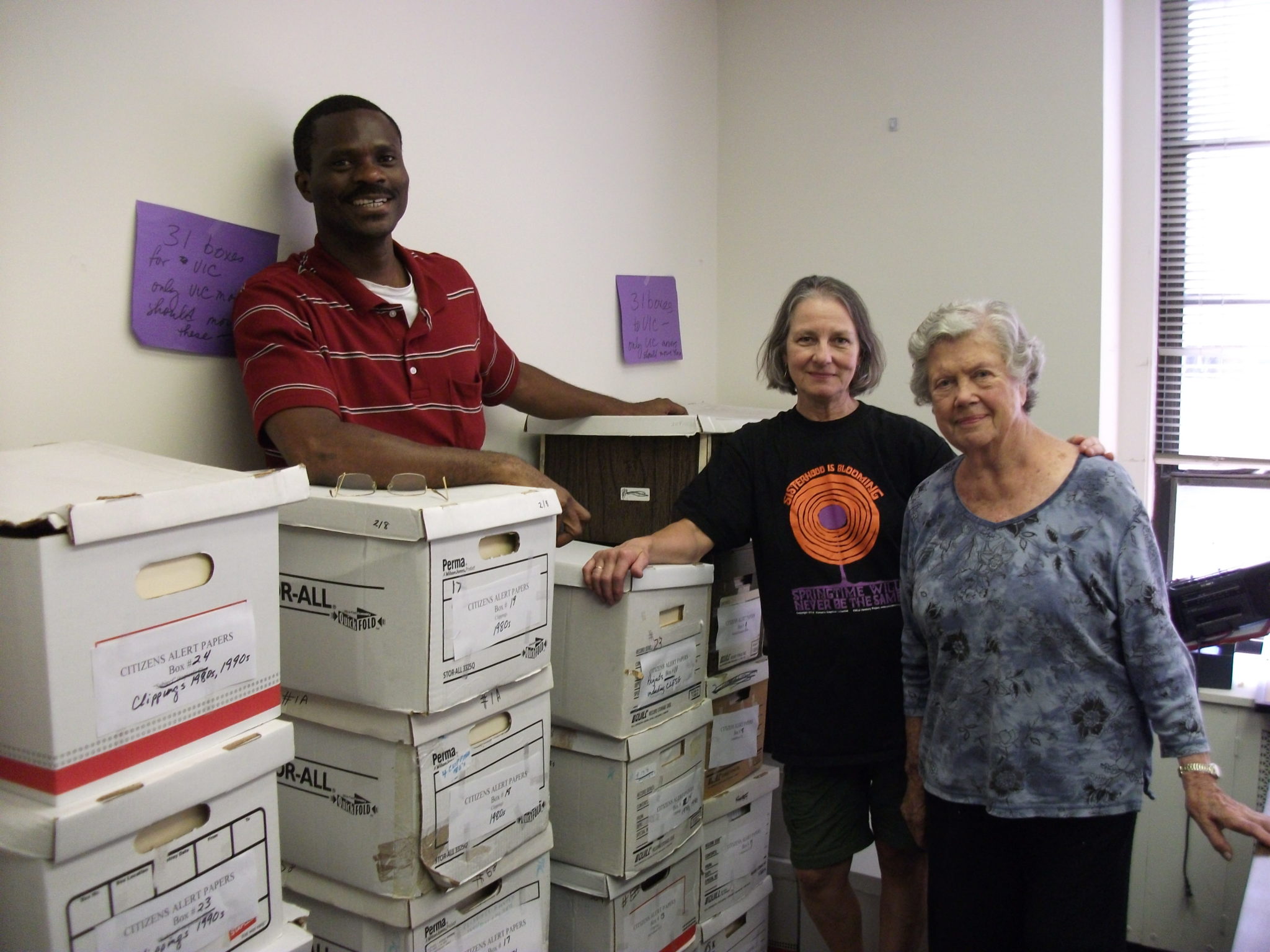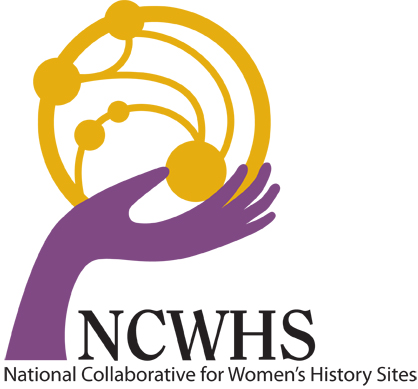
by NCWHS board member Peg Strobel
Charles Hounmenou from the Jane Addams College of Social Work, Peg Strobel, and Mary Powers from Citizens Alert with boxes headed for University of Illinois at Chicago Special Collections Department
I will begin with a mea culpa: For most of my early years as an activist, despite being an historian I did a terrible job keeping primary documents generated by the organizations I was in. To make up for my irresponsible past, I’ve spent (parts of) the last fifteen plus years on a project called Don’t Throw It Away! I invite you to join me in this work.
In 1995, archivists in the Special Collections Department of the University of Illinois at Chicago (UIC) and I created a booklet, Don’t Throw It Away! Documenting and Preserving Organizational History, and offered classes and workshops to help grassroots organizations get their records in order. (A longer explanation of the early stages of this work is found in Margaret Strobel, “The Don’t Throw It Away! Project at the University of Illinois at Chicago,” NWSA Journal, Vol. 12, no. 2 [Summer 2000]: 163-70.) In 2006, we revised the booklet to address issues of electronic records. A pdf of the 56-page booklet is available at <http://www.uic.edu/depts/lib/specialcoll/pdf/DTIA.pdf >.
The idea is this: People who care passionately about issues and who work in un- or under-funded organizations typically prioritize organizing the next demonstration or meeting over organizing their documents and getting them into a repository. So, the booklet and the workshops aim at four points: 1) why is it important to keep good records and deposit them somewhere that historians of the future can find them, 2) what is it important to keep and how do I do it, 3) what are the pros and cons of donating organizational papers to a repository, and 4) how do I find and choose a repository, if I want to donate?
